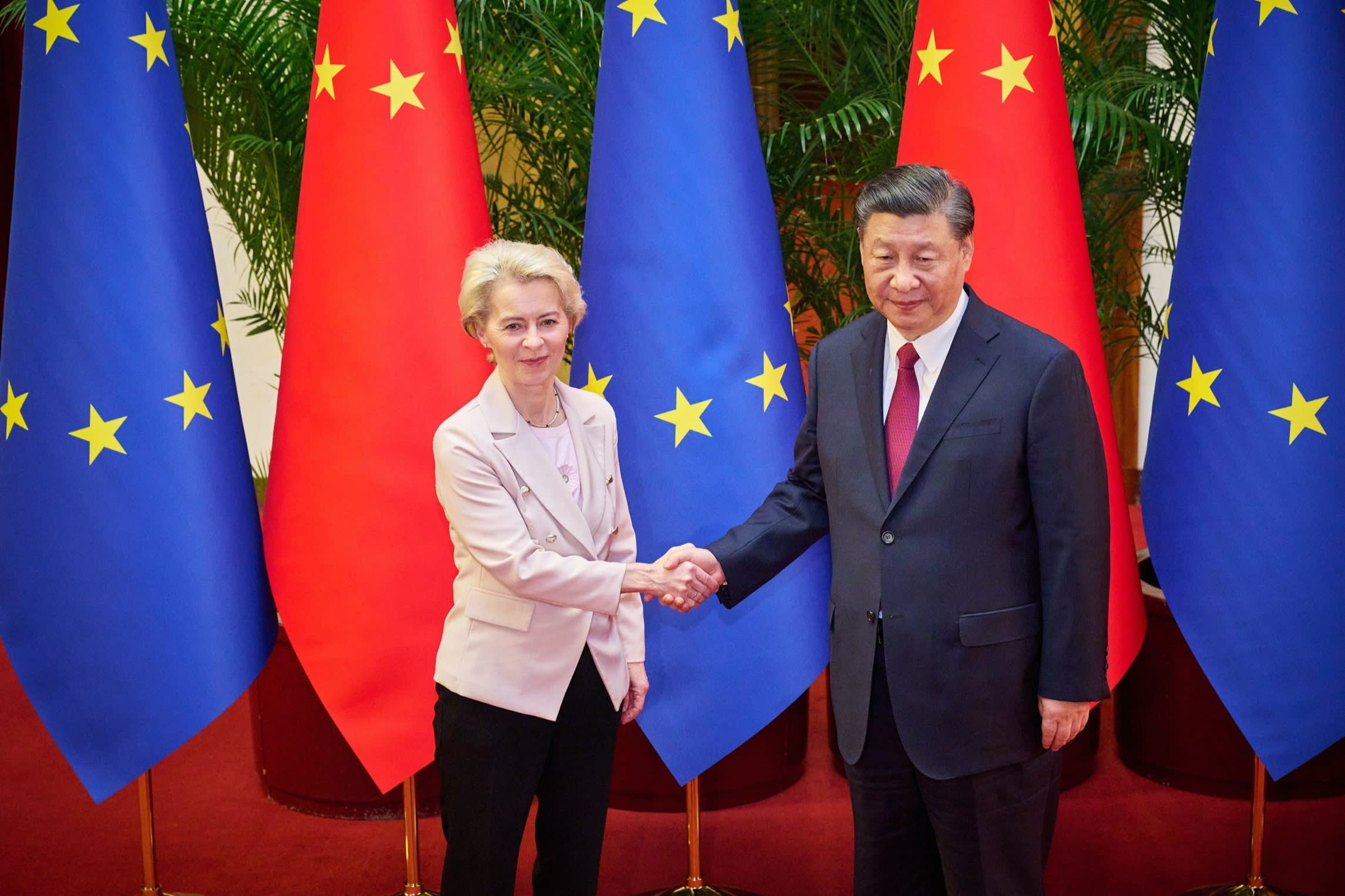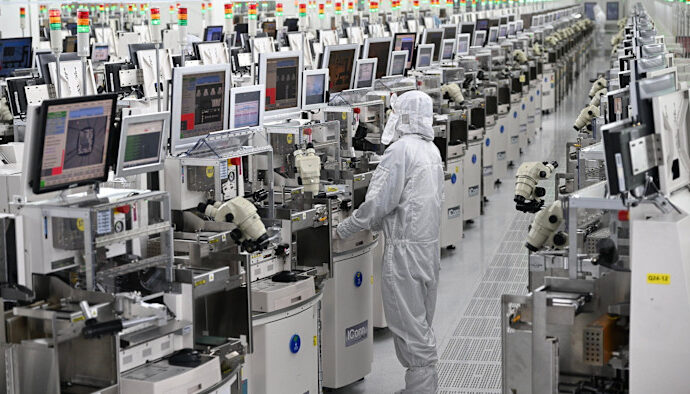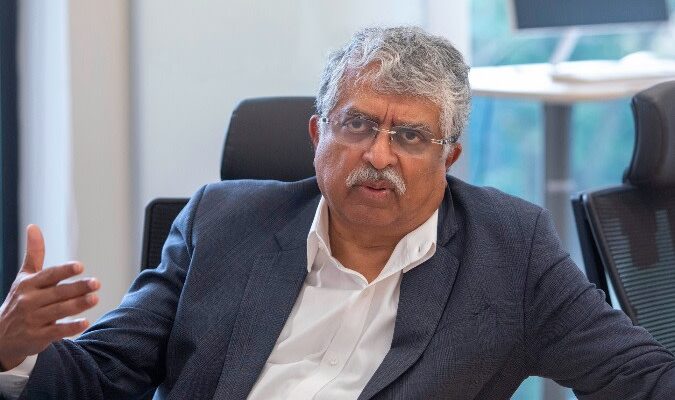China has issued a stern rebuke to the EU for imposing sanctions on the country’s banks, setting the stage for what are expected to be tough talks in Beijing on Thursday.
China’s commerce minister Wang Wentao “lodged solemn representations” over the sanctions with EU trade commissioner Maroš Šefčovič, the ministry said on Wednesday.
The restrictions, which targeted two small Chinese banks for facilitating trade with Russia, were imposed days before a summit on Thursday with EU and Chinese leaders, which will mark half a century of ties between the sides.
European Commission president Ursula von der Leyen and European Council president António Costa are expected to raise differences with China over trade and the Ukraine war with President Xi Jinping and his number two, premier Li Qiang.
Beijing will be keen to portray the summit as a triumph of multilateralism and a sign that Europe is splitting away from Donald Trump’s US. Brussels, however, is focused on emphasising that China’s ballooning trade surpluses and alleged supplies of dual-use goods for Moscow’s war effort, which Beijing denies, are unacceptable.
“China is the key enabler of Russia’s war in Ukraine,” Kaja Kallas, the EU’s chief diplomat, told the Financial Times ahead of Thursday’s summit.
She added that the EU was concerned about Chinese industrial overcapacity, trade imbalances and “economic coercive practices”, citing its dominance in critical raw materials, chemicals and consumer drones. “Trade and security are interlinked,” she said.

Von der Leyen and Costa will have plenty of face time with Xi during the one-day visit, which is set to include a summit and working lunch followed by a meeting and banquet with Li.
Beijing has sought to project a positive tone, hailing the summit as an encounter between “two major forces in building a multi-polar world, two big markets that support globalisation and two great civilisations that advocate cultural diversity”.
But Xi had declined an invitation to travel to Brussels, where the summit was meant to be held this year, a move seen as a snub by the EU side. Brussels then stonewalled a flagship economic meeting last month.
One senior EU official, asked what the “deliverables” might be, said that it was an achievement that the sides were talking. “A good exchange . . . at the highest level in China is a good deliverable,” the official said.
The two sides have little common ground.
China’s trade surplus with the EU hit a record of nearly €400bn in 2022, and has remained high since. European officials have accused Chinese producers of dumping surplus low-cost goods on their markets, and its businesses complain about barriers to access the world’s second-largest economy.
The EU has opened more than 25 trade defence investigations over the past year into Chinese products including candles, sweetcorn and car and truck tyres, about fourfold the tally from the year before.
China’s refusal to condemn Russia’s full-scale invasion of Ukraine has also sharpened European distrust.

China’s foreign minister Wang Yi told Kallas in Brussels this month that Beijing did not want Russia to lose the war in Ukraine because the US might then shift its focus to China and Asia, people briefed on the discussion said.
Those remarks, first reported by the South China Morning Post, startled EU officials present, the people said, after years of strenuous Chinese claims that it was not a party to the conflict or supporting Moscow’s invasion.
“Eighty per cent of all dual-use goods [for Russia] go through [China],” said another senior EU official, who requested anonymity. “That’s very problematic.”
“Bilateral relations . . . face some challenges,” Beijing’s foreign ministry said this week. “Some in the EU have played up the ‘partner-competitor-rival’ characterisation, exaggerated economic and trade issues, and groundlessly accused China on the Ukraine issue, which has caused unnecessary disruptions to bilateral relations.”
Both sides’ appetite for confrontation is limited, however, by their focus on their respective tariff fights with the US, with which they were racing to conclude new trade deals by deadlines next month, the officials said.
China has responded mildly to EU trade curbs, from tariffs on electric vehicle imports to restrictions on its medical device makers winning large procurement contracts in the bloc.
“The Chinese want to keep their heads down,” a senior EU diplomat said. “They didn’t really retaliate over electric vehicles. They are focused on the US and they do not want us to join forces with the US.”
Wang Dong, professor and executive director of Peking University’s Institute for Global Cooperation and Understanding, suggested that the sides could make headway on three fronts: ensuring stable supply chains, reforming the World Trade Organization and climate change.
Beijing has agreed to fast-track export approvals of rare earths — over which China wields a near monopoly — for some European companies, which had been hit by new restrictions introduced in response to Trump’s tariffs. China, meanwhile, has been frustrated by Dutch export controls on semiconductor manufacturing equipment that followed US pressure.
Wang added that Beijing was working to counter what officials have called neijuan, or involution, referring to price competition in manufacturing industries as a result of overcapacity. “China is working to contain any negative externalities,” he said.
Brussels’ diplomats were still attempting to find a compromise with Beijing on climate change commitments that would allow the signing of a joint statement, two EU officials involved in the talks said. Brussels has refused to agree on a communiqué unless China pledges greater efforts to cut its greenhouse gas emissions.
But von der Leyen, who has taken a much harder line on Beijing than her predecessors, would not seek confrontation, the people said. “Both sides have no interest in rocking the boat,” said one of the officials.


